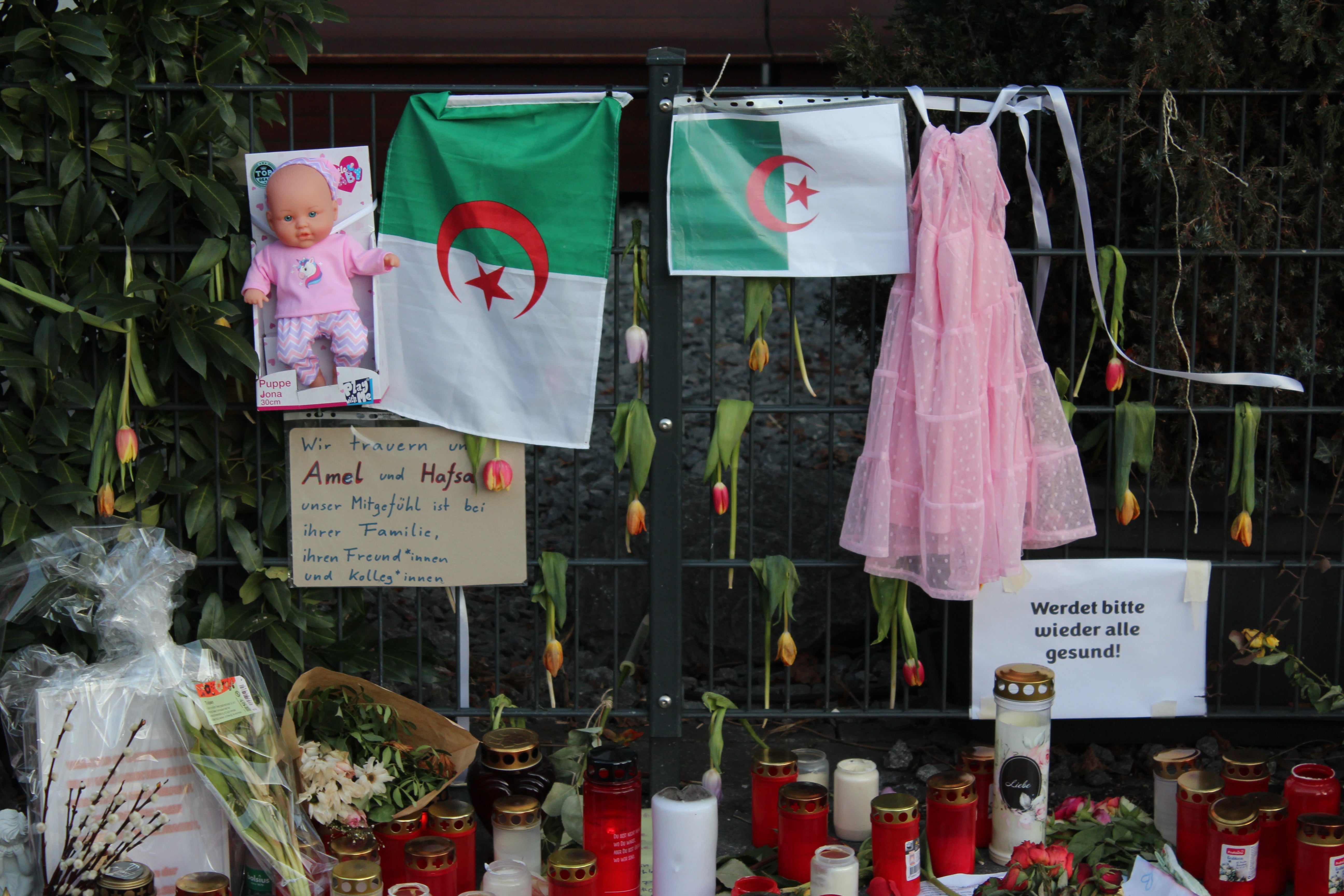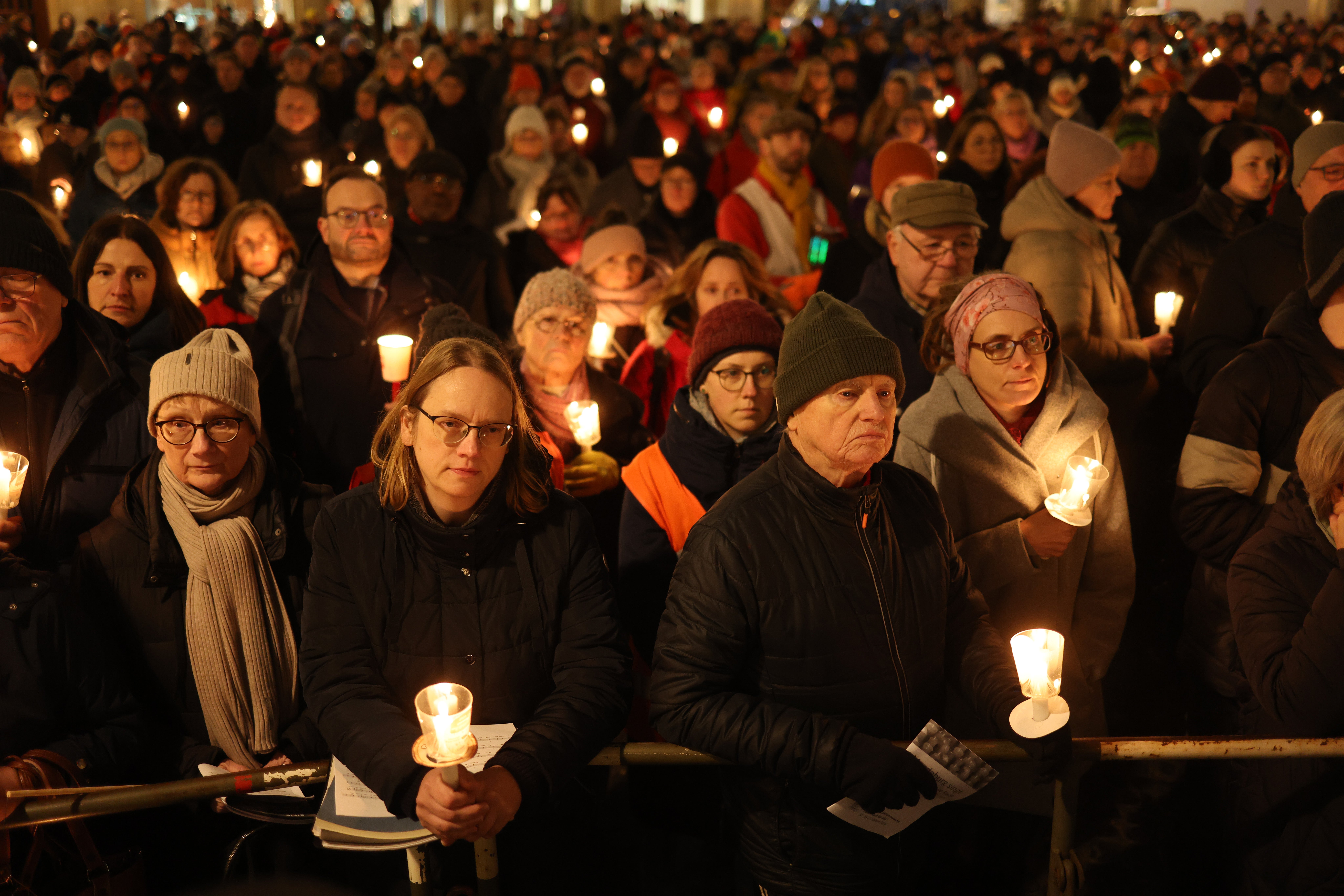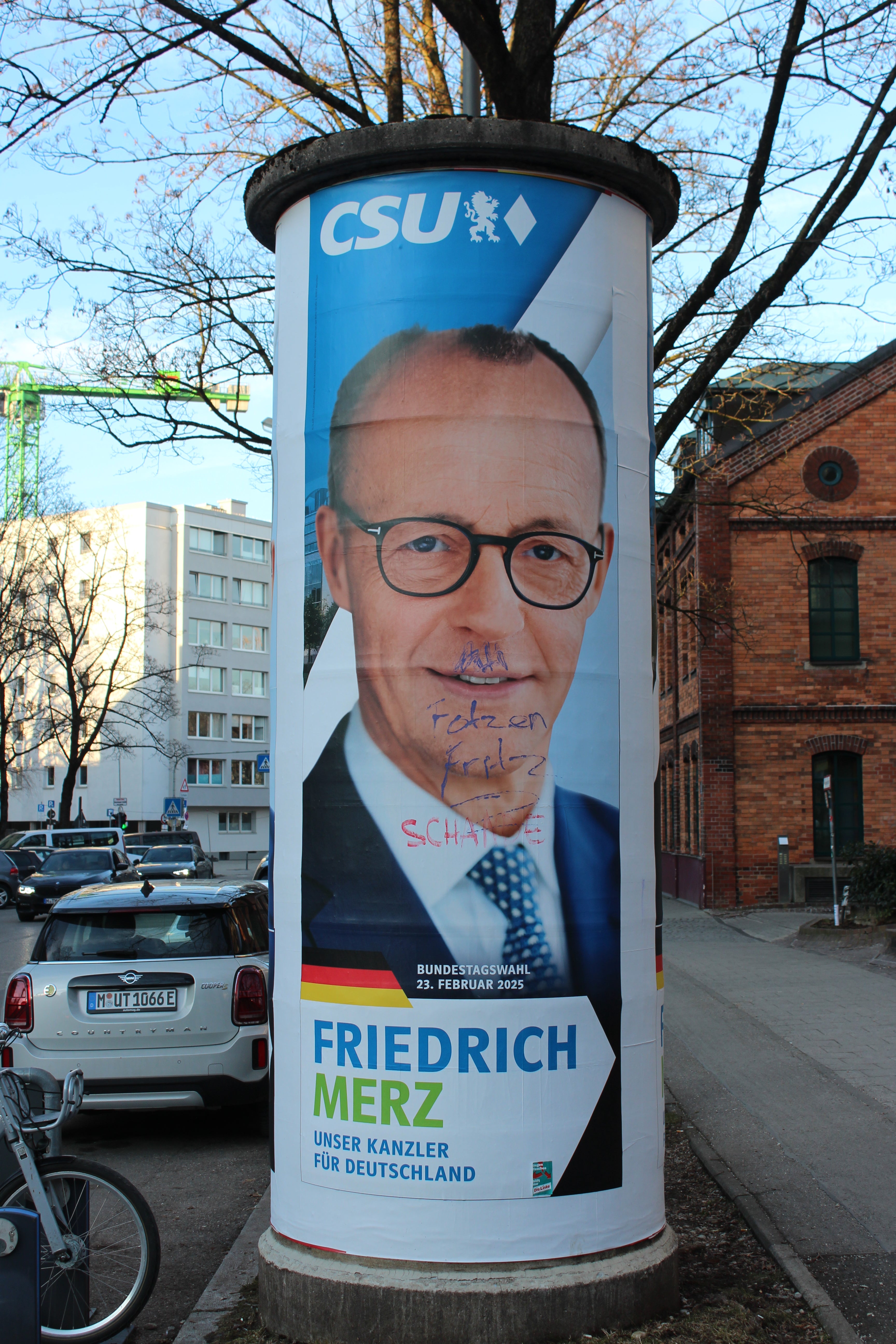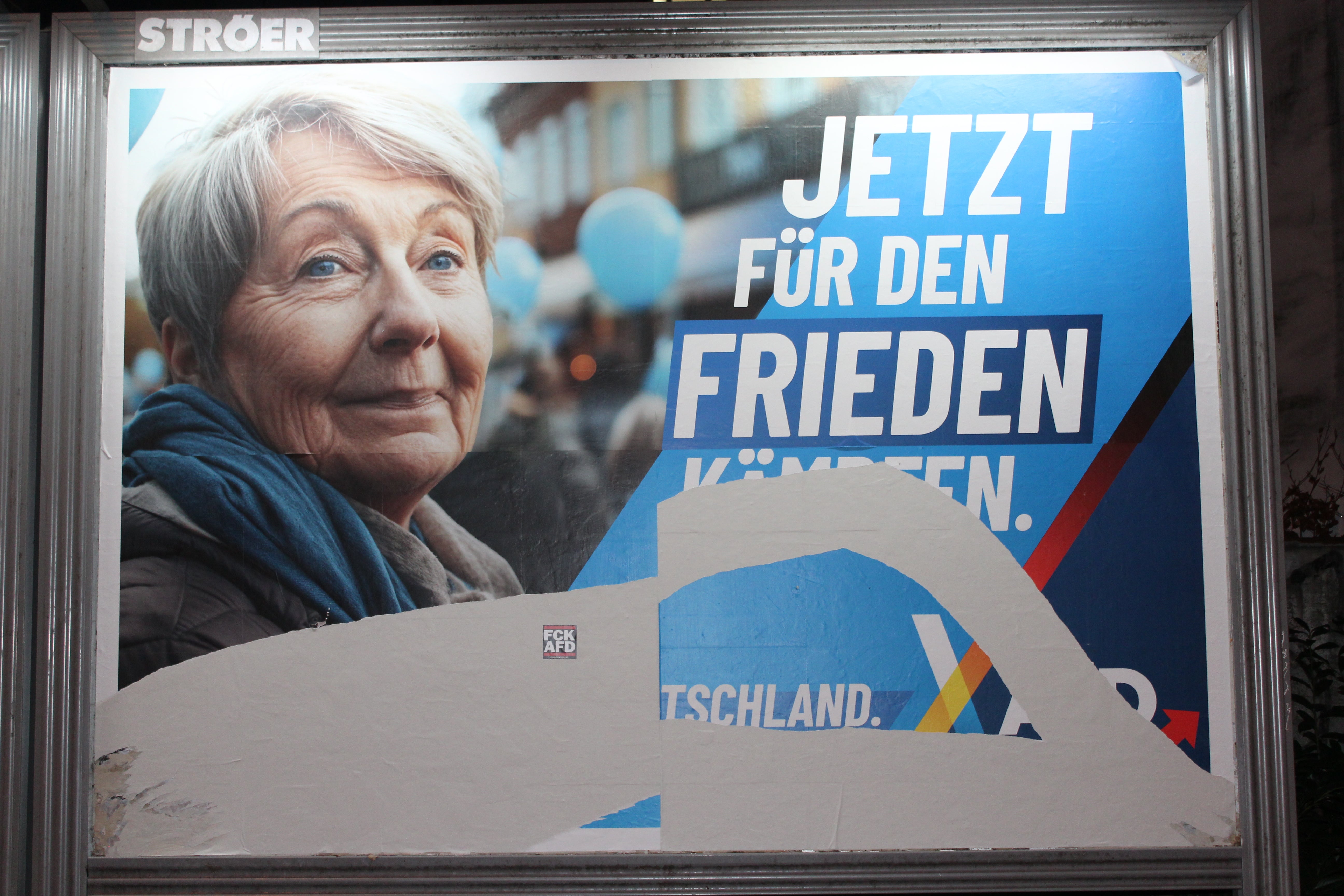A middle-aged woman clutching an emptied cardboard box stands silently over the latest pile of fresh red flowers to be laid on the roadside near Munich central station. A pink child’s dress hangs on the railings above, next to an Algerian flag and a doll. Teddy bears sit among placards calling for peace.
It’s been just over a week since a 24-year-old Afghan asylum seeker drove his white Mini into a crowd of people attending a trade union demonstration. It was the third suspected terror attack in Germany in as many months.
More than two dozen were injured. A woman originally from Algeria, who went on to work for the government, and her two-year-old child were killed.
A 19-year-old waitress working at a diner next to where the attack took place says her “heart broke” when she found out a child had been killed.


She had been at her family house an hour away when the attack happened. When she returned three days later, she said the area was swarming with police. It was then that officials announced the death of the mother and child.
“I never thought that something like this could happen,” she says, asking not to be named so she could talk freely about who she would vote for. “Now, every time I’m in the city, it reminds me of the accident, and I think, well, what if something like this would happen now?”
Up the road, a political poster depicting a smiling Freidrich Merz, the leader of the Christian Democratic Union (CDU) and who is expected to become Germany’s next chancellor, has been defaced with an Adolf Hitler moustache. The country goes to the polls on Sunday.
This attack was the latest in what has been a brief but traumatic election cycle for Germany. Chancellor Olaf Scholz announced the collapse of his three-way coalition in November, meaning the election originally scheduled for September this year had to be brought forward.
A few weeks after the collapse, in December, a 50-year-old Saudi Arabian man drove a truck into a Christmas market in the eastern city of Magdeburg, killing six and injuring 200. A month later, a 28-year-old Afghan man attacked a school group, killing a two-year-old child and a man in the southern city of Aschaffenburg.

Then last Thursday, there was an attack in Munich. Local authorities say they believe the assailant, named Farhad Noori, may have had “Islamist motivation”.
These attacks have fuelled a toxic political environment in Germany, with the rise of the far-right party Alternative for Germany (AfD), which is using them as evidence of the need for a tougher stance on immigration and the “remigration” of millions of asylum seekers.
The party’s leader Alice Weidel, who has been championed by X owner Elon Musk, posted on her ally’s social media platform after the attack: “Is this supposed to go on forever? Migration turnaround now!”
The party, which dismisses allegations it is far-right and racist despite certain factions of the group having been designated as far-right extremists by domestic courts, has climbed to second in the polls behind the CDU, with around 21 per cent of the vote. In Munich and the wider area, it is polling closer to 12 per cent, while the CDU’s sister party, the CSU, is a strong favourite.
Counter-protests across the country, however, attended in Munich earlier this month – before the attack – by hundreds of thousands of people say the AfD must be kept out of power.
Since the end of World War II, Germany has worked hard to atone for its past. A policy of “Brandmaeur”, meaning firewall in English, in which the government refuses to work with any parties considered far right has been in place since the 1950s.
AfD posters plastered around Munich have had to be raised higher off the ground to prevent them from being ripped up by angry pedestrians. They are often plastered with small stickers saying “FCKAFD”.
Mr Merz, the CDU leader, threatened the firewall for the first time last month when he accepted votes from the AfD to push through a bill on tighter immigration control. It is for this reason that some of his posters have been defaced.
Mr Merz insists if he wins, he will not go into a coalition with the AfD, which would take him over the 50 per cent threshold. Instead, he will work with whichever parties behind the AfD do sufficiently well to carry the CDU mark. That could involve multiple parties.


The 19-year-old waitress, however, says she thinks she will vote for the CSU. She says she’s scared and she thinks tougher border controls would be better.
“[The CSU] just want to look out more and be a little stricter, which I think is good, especially for me as a girl,” she says.
“You know, like, I am at the train station so often, and I’ve been in situations too, with Germans, of course, but especially people that came here from other countries.”
If not them, she adds – suddenly quietening her voice as a man walks out of a door nearby – she says she might vote for the AfD party. She says its videos keep popping up on her TikTok and Instagram feeds.
“Everyone keeps it to themselves because when someone says they vote for the AfD, it’s usually like, ‘Oh, you’re a Nazi’,” she says. You know, like, you’re just a terrible person. That’s what people think. But it isn’t true.”
Back at the vigil, as the woman remains fixed in silence, a couple walks past trying to quieten their child. The little girl is attempting to swing off each of their arms. “It’s just so “f***ing sad,” the mother says to her partner after they’ve passed the memorial, as the child keeps on trying to play.



